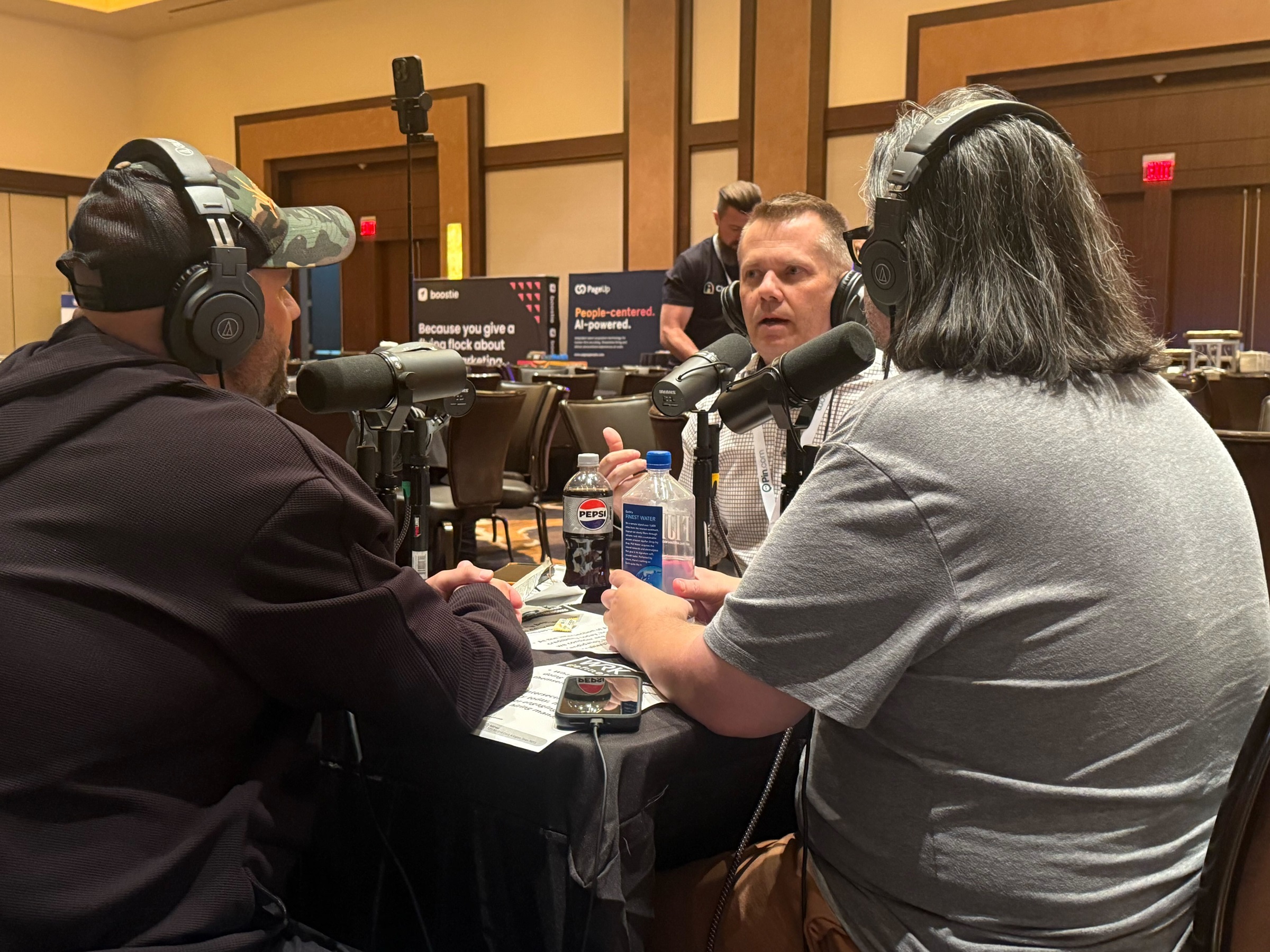
Shafiur Rahman
CEO at ChatterWorks

Paul DeBettignies shares candid insights on mental health, recruiting challenges, and navigating uncertainty in today's workforce.
Recruitment isn't just about filling roles – it's about human connection, empathy, and understanding the genuine experiences of candidates and recruiters alike. At the ERE Recruiting Innovation Summit, seasoned recruiter and industry veteran Paul DeBettignies (the Minnesota Headhunter himself) spoke openly about why mental health is becoming one of the most critical components in recruitment strategies today.
Known for his humorous candor, Paul opened with personal anecdotes – like his brief yet intense foray into fantasy football and why he consciously avoids gambling tables – to emphasize knowing one's limits. It's a metaphor he seamlessly extends into professional life, underscoring the importance of self-awareness and boundaries, especially in high-stress recruitment roles.

Paul passionately argues that prioritizing mental health isn’t optional—it's essential for survival in recruitment. Reflecting on recent years, including the lingering impacts of the Great Resignation and continuous economic instability, Paul suggests that traditional recruitment strategies miss the mark by neglecting emotional wellness.
"We haven’t been okay for years," Paul candidly shared. "Recruiters have faced nonstop challenges – economic uncertainty, remote work shifts, intense market fluctuations – and the stress accumulates. We must address mental health as central to recruitment, not as an afterthought."
Recruiting today demands authentic, genuine engagement with candidates and colleagues alike. Paul highlights the significance of asking deeper questions beyond standard greetings. “'How are you really doing?' should become the daily mantra for recruiters," he emphasizes. By creating space for honesty and vulnerability, recruiters build trust and meaningful relationships, essential in a market where skepticism is high.
Paul criticizes the overly complex nature of modern recruiting practices, arguing that simplicity and clarity are undervalued assets. "Recruiting has become unnecessarily complicated," he explains. "It’s time to get back to basics: clear communication, genuine empathy, and understanding candidate experiences."
Paul underscores the immense value found in the informal moments of professional gatherings. Whether conversing over coffee or engaging with colleagues at conferences, the best insights often come from genuine, spontaneous interactions rather than scheduled sessions. "Networking at events isn't just beneficial – it's crucial," he notes.
Economic shifts and uncertainty significantly influence recruitment practices, requiring recruiters to be agile and responsive. Paul urges recruiting professionals to rethink traditional approaches entirely. "Economic instability forces us to be innovative, flexible, and proactive," he asserts.
Recruiting without empathy, Paul vividly describes, is like Vegas without its lights—pointless. Recruiters must lead with compassion, genuinely understanding candidates' and employees' mental states and personal challenges. This empathy not only improves individual recruitment experiences but also strengthens organizational culture and retention.
Paul also shares an undervalued growth tool: personal reflection and writing. By taking time to reflect, recruiters can better understand their experiences, identify areas for improvement, and cultivate emotional resilience. "Writing and reflection might seem simple, but they're powerful tools for professional and personal growth," Paul suggests.
As recruiters continue navigating uncertainty, Paul highlights that mental health considerations will increasingly dictate successful recruitment strategies. Organizations willing to integrate empathy, open communication, and emotional well-being into their culture will lead the way.
"Recruitment's future hinges on recognizing and addressing the emotional realities of candidates and recruiters alike," Paul concludes. "It's time we started asking—and genuinely listening to – the question, 'How are you really doing?'"
Paul DeBettignies’ frank and thoughtful dialogue at the ERE Recruiting Innovation Summit offers recruiters powerful insights into the crucial intersection of emotional well-being and effective talent acquisition.
This article is part of Chatterworks' limited podcast series, capturing real-time insights from recruitment leaders at the ERE Recruiting Innovation Summit.